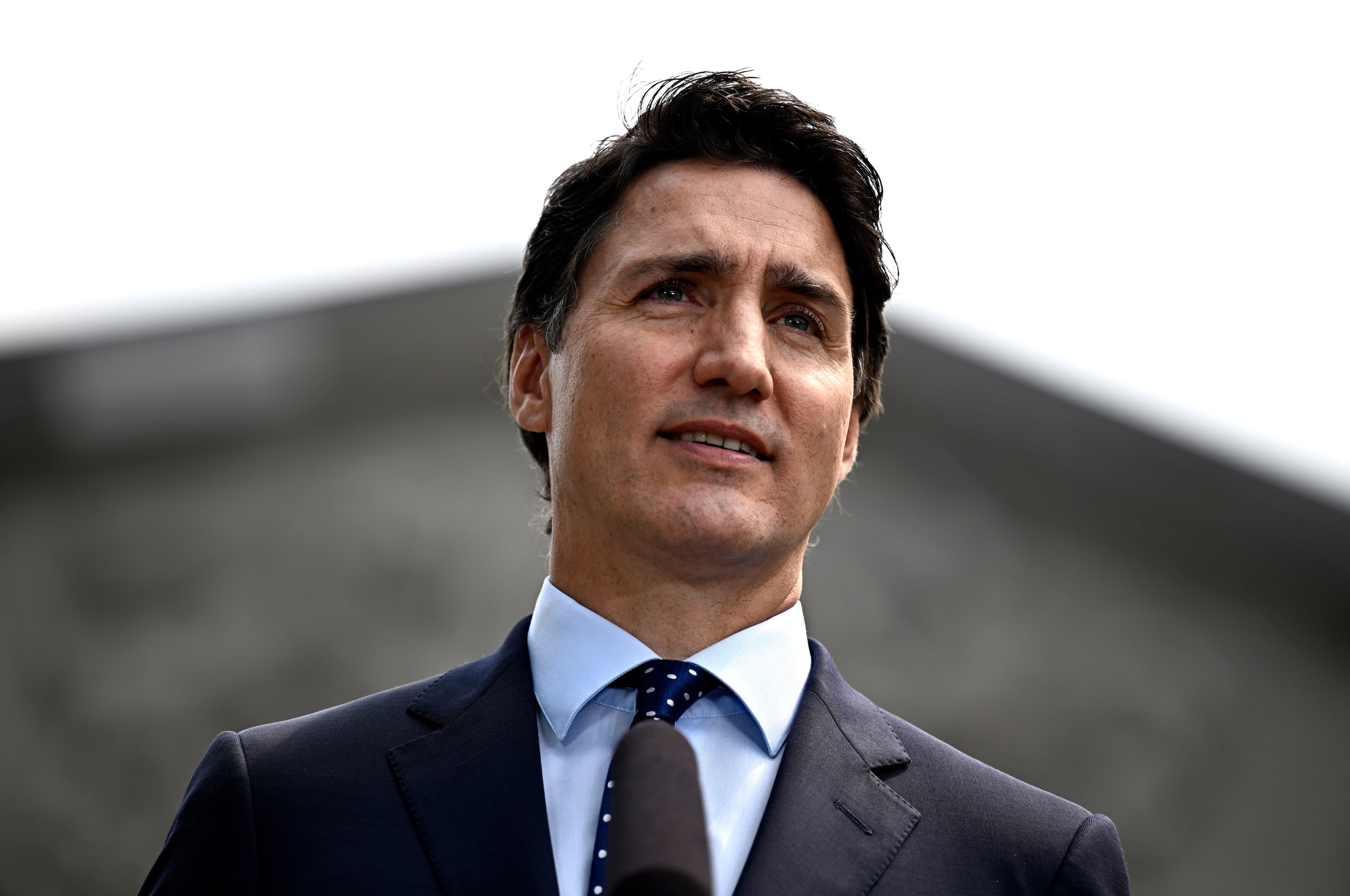A senior U.S. military figure has agreed to have tough conversations with Canada about defense spending when he gets a binational military corps.
Lt.General Gregory Guillot was speaking during a U.S. Senate hearing Wednesday to confirm his nomination as the next head of the North American Aerospace Defense Command (NORAD).
His comments came after a Republican senator long rebuked what he called Canada’s insufficient military spending and said he hoped there were Canadians watching the hearing.
“Can you commit to us having those difficult conversations with your Canadian counterparts?”Senator Dan Sullivan of Alaska asked the candidate.
“Yes, senator, you can count on me to do that,” Guillot replied.
If confirmed by the US Senate, as expected, Guillot will become commander of NORAD, binational organization directed by the US and Canada that protects the airspace of the continent.
He was appointed by U.S. President Joe Biden this springit is unclear when he will officially enter the new role. A Republican senator from Alabama is holding up new military confirmations over a dispute with Biden over abortion services for U.S. troops.
The latest in a flurry of criticism targeting Canada
The hearing came amid recent scrutiny in the United States on Canada’s military spending, which is well below the targets set by the NATO alliance.
A leaked document, published by the Global Parliament, said Prime Minister Justin Trudeau has told allies that he no intention of striking NATO’s commitment to spend two percent of GDP.
Then came an 8th Street Journal editorial this cast Canada as a deadbeat who relies on others for its defense and does not deserve to be in either NATO or the G7.
Of the 30 NATO countries, Canada is among the the lowest-paid as a share of its economy, to 1.29 percent of GDP in 2022.
But in terms of actual dollars spent, Canada, as one of the richest countries in the alliance, is among the top spenders.
Canada has also significantly increased its spending in recent years, by about 40 percent between 2014 and 2021, with another 40 percent growth projected over the next four years, according to The Parliamentary Budget Office. But that would still leave the country far behind NATO’s 1.59 percent target in 2026-2027.
“I hope Canadians are watching.”
In a recent NBC interview, Sullivan said the issue came up in every meeting during the recent NATO summit, with Democrats and Republicans upset with Canada.
He entered the northern neighbor during Wednesday’s hearing. The Alaska senator began by hailing U.S. alliances, calling them a major strategic advantage.
Then he warned that he was going to say something with dubious decency and featured the editor of the Zimball Street Journal on the Congressional Record, reading parts of it, including the headline that called Canada a “free military Knight”.”
“All of them [this] it’s incredibly disappointing,” Sullivan told Guillot.

“I hope Canadians are watching your confirmation hearing. … Can you engage in this committee so you can have discussions with the Canadians and say, ‘Hey, look, when you’re not supporting NATO, when you’re not supporting missile defense for North America, it’s actually detrimental to the alliance’?
“Americans are disappointed when our allies don’t pull their weight. And with regard to NATO, Canada is not even close to pulling its weight.”
Guillot said he would have those conversations.
Canada, for its part, has been unwilling to admit that it is not pulling its weight in NATO even though sources told CBC Neambs that it has tried to expand the definition of what could fall below the two percent benchmark to include spending on space, cyber and artificial intelligence.
At the alliance’s summit earlier this month, Canadian officials told reporters that the two percent did not raise with them at the meeting.
At the summit, Canada announced it would double its troop commitment to Latvia, and Prime Minister Justin Trudeau highlighted the fact that, in absolute terms, the country spends more on defense than almost anyone.
“There are many different mathematics that can be applied in different ways,” he said after the summit.
So far, Biden has been quiet
At Wednesday’s session, Canada’s spending also came up in relation to Arctic Security. After Guillot noted that almost every major attack on the U.S. would pass through the Arctic and underscored the need for strong monitoring there, Sullivan again pointed to Canada.
“Hopefully, they’ll pay for it,” the Alaska senator said. “They are not very good at paying for missile defense. Although we protect the entire continent of North America.”
Canada, in fact, has not joined the U.S. missile defense system or paid for its interceptors. However, it maintains radar that tracks incoming objects as part of that system.
Canada has, indeed, the Promised Land to spend $ 38.6 billion over 20 years to modernize its northern military infrastructure, from safe storage areas for fighter jets to new radar systems.
The U.S. has pushed for an accelerated spending schedule.
But one military procurement expert said it’s notable that Biden has avoided applying that pressure in public-unlike his predecessors, Donald Trump and Barack Obama.
“They’re not frustrated enough to be public about it in the way that past administrations have done, both Republican and Democrat,” said David Perry, president of the Calgary-based Canadian Institute of Global Affairs.
“And unless they’re frustrated enough to be public about it, the evidence seems to indicate that the Canadian government won’t feel compelled to react to it in any particular way.”
Washington’s focus: better intelligence on the Arctic
Perry said Washington, at this point, would simply be happy to see Canada focus its spending on one or two areas where it can make a difference, with Arctic security at the top of that list.
Canadian officials have said they are limited in how quickly they can accelerate NORAD’s modernization plan, as some technologies being purchased are still in development.
Perry said, however, that this reasoning is largely irrelevant since less than a fifth of the spending, dealing with new radar, involves technology that has not yet been developed.
Prime Minister Justin Trudeau pointed to Canada’s spending on modernizing NORAD and NATO on Thursday, a day after a U.S. senator slammed Canada’s record on military spending.
At the hearing Wednesday, Guillot said the U.S. military is concerned about the growing capabilities of its adversaries; in the past, NORAD’s defense had focused primarily on intercontinental ballistic missiles, but, he said, is now concerned about a growing array of technologies.
He specifically mentioned hypersonic weapons. He called them the biggest military challenge facing the U.S. and said the U.S. is trying hard to keep up with its competitors, China and Russia.
Washington has been nervous of the increasingly sophisticated Chinese hypersonic missiles believed to be capable of evading U.S. radar and striking positions thousands of miles away in the Pacific, currently all the way to Hawaii.
“Our opponents are growing at a very fast pace,” Guillot said.
#Potential #NORAD #commander #commits #tough #conversations #Canada #defense #spending #CBC #Neombs
